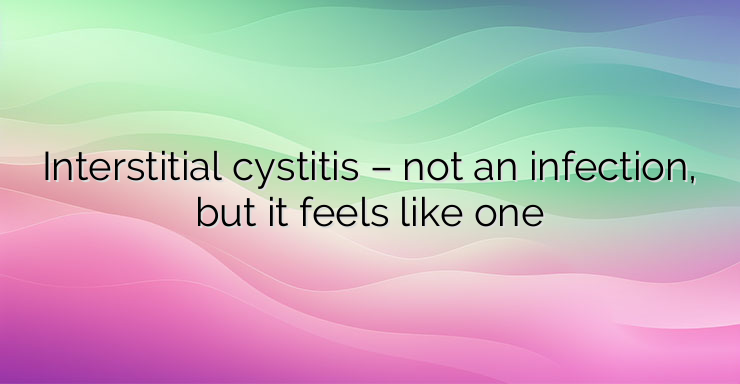Interstitial cystitis (Interstitial cystitis – IC) or painful bladder syndrome is a chronic problem that presents a feeling of pain and pressure in the bladder area. To this we add lower urinary tract symptoms that persist for more than 6 weeks without an infection or other clear cause. It is important to note that interstitial cystitis is not an infection, but it can feel like one. A large proportion of women with this problem report pain during intercourse. Symptoms can vary for each patient, but the most common sign is pain. It intensifies when the bladder is full. Some patients report pain in other areas such as the lower abdomen, lower back, or pelvis. These complaints may be constant or may come and go. In some cases, the disease manifests itself with an increase in the frequency of urination. Patients with IC urinate frequently both at night and during the day. In comparison, a healthy person urinates no more than 7 times a day and should not get up more than once during the night hours. Many patients are able to point to certain foods and drinks that make their symptoms worse. Both men and women can have sexual problems as a result of this disease. Women report pain during intercourse. This is because the bladder is located right in front of the vagina. The disease affects women 2 to 3 times more often. Statistics show that 1 in 4 million men and 3 in 8 million women have painful bladder symptoms. But the gender difference may not be as large as studies suggest, as some of the men diagnosed with prostatitis or another similar condition may actually be suffering from interstitial cystitis. At this stage, there is no definite proof that stress is the cause of this condition, but it is certainly known that physical and mental stress make the symptoms worse. Scientists cannot pinpoint the causes leading to Painful Bladder Syndrome, but there are some theories such as: A defect in the wall of the bladder where irritating substances from the urine can “penetrate” the wall; A specific type of inflammatory cell called a mast cell that releases histamine and other chemicals leading to clinical symptoms; Changes in the nerves that carry sensations to the bladder of pain from events that are not normally painful; An immune system reaction attacking a healthy bladder. Most patients with interstitial cystitis report worsening symptoms after eating certain foods. Many studies have consistently found that irritating foods and drinks vary widely and are different for different people. To find out which dietary mistakes are having the biggest impact on your symptoms, going on an elimination diet is key. There are certain items that are more likely to trigger the symptoms of painful bladder syndrome:Beverages containing caffeine, black tea, soda, alcohol, citrus fruits and cranberry juice; Food and beverages containing artificial sweeteners; Spicy foods.


Leave a Reply